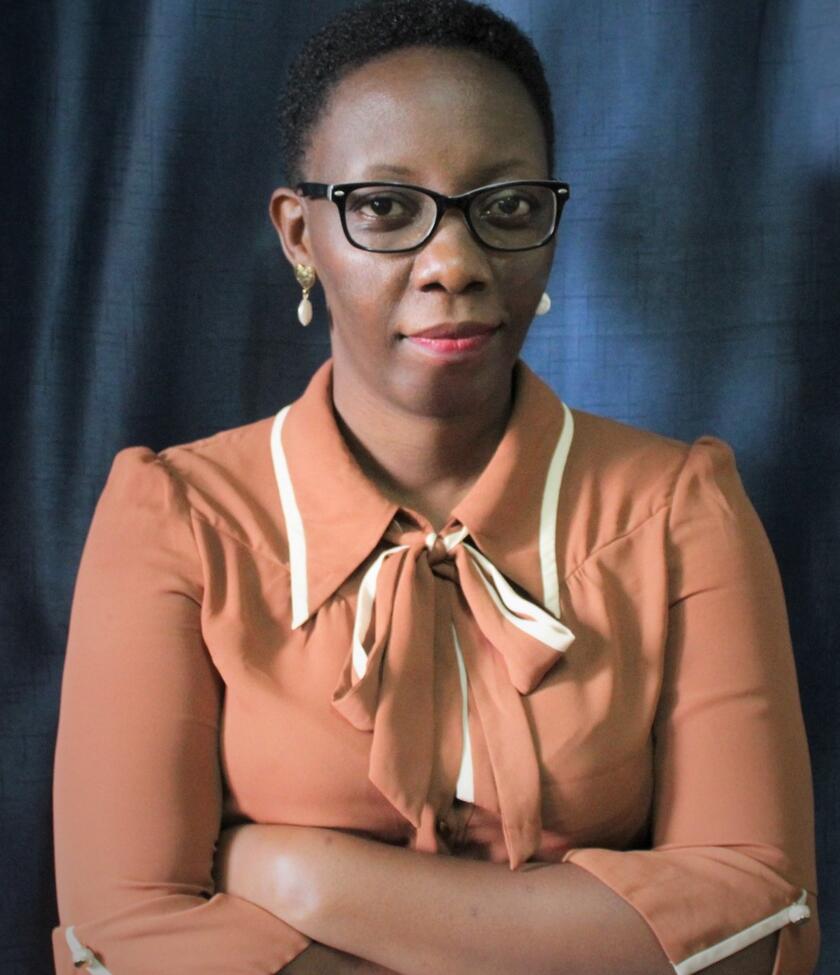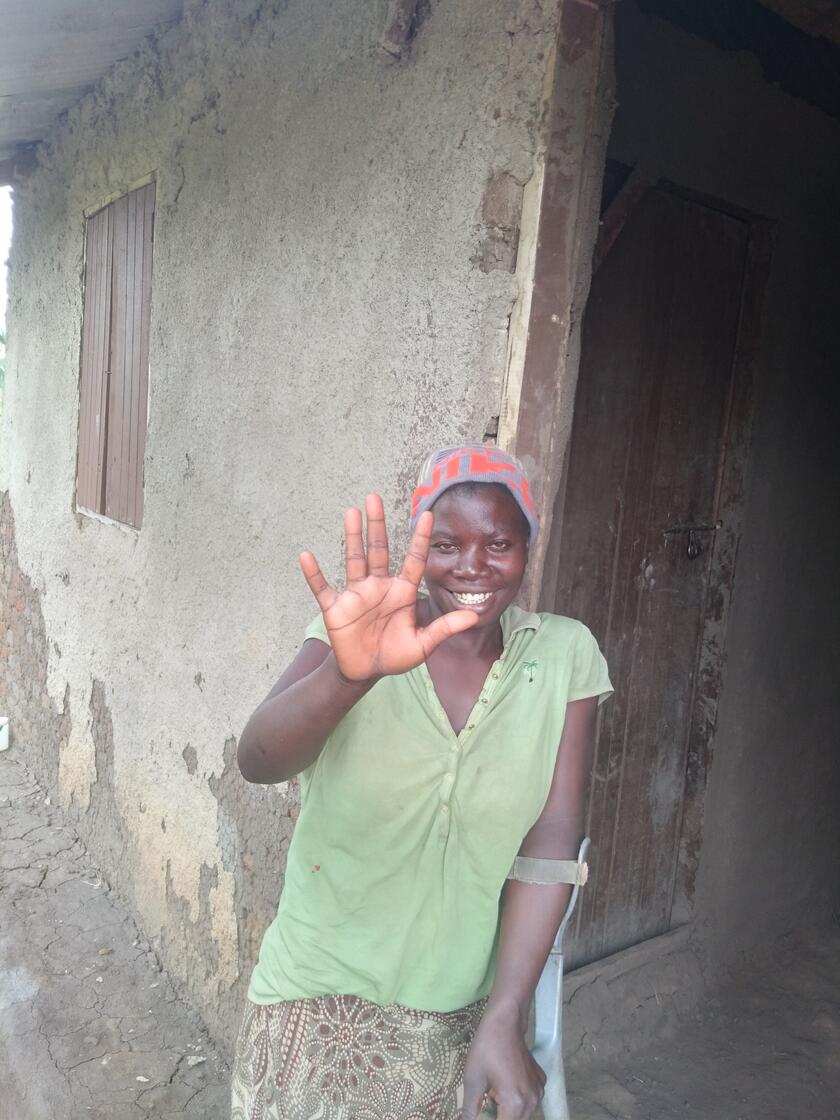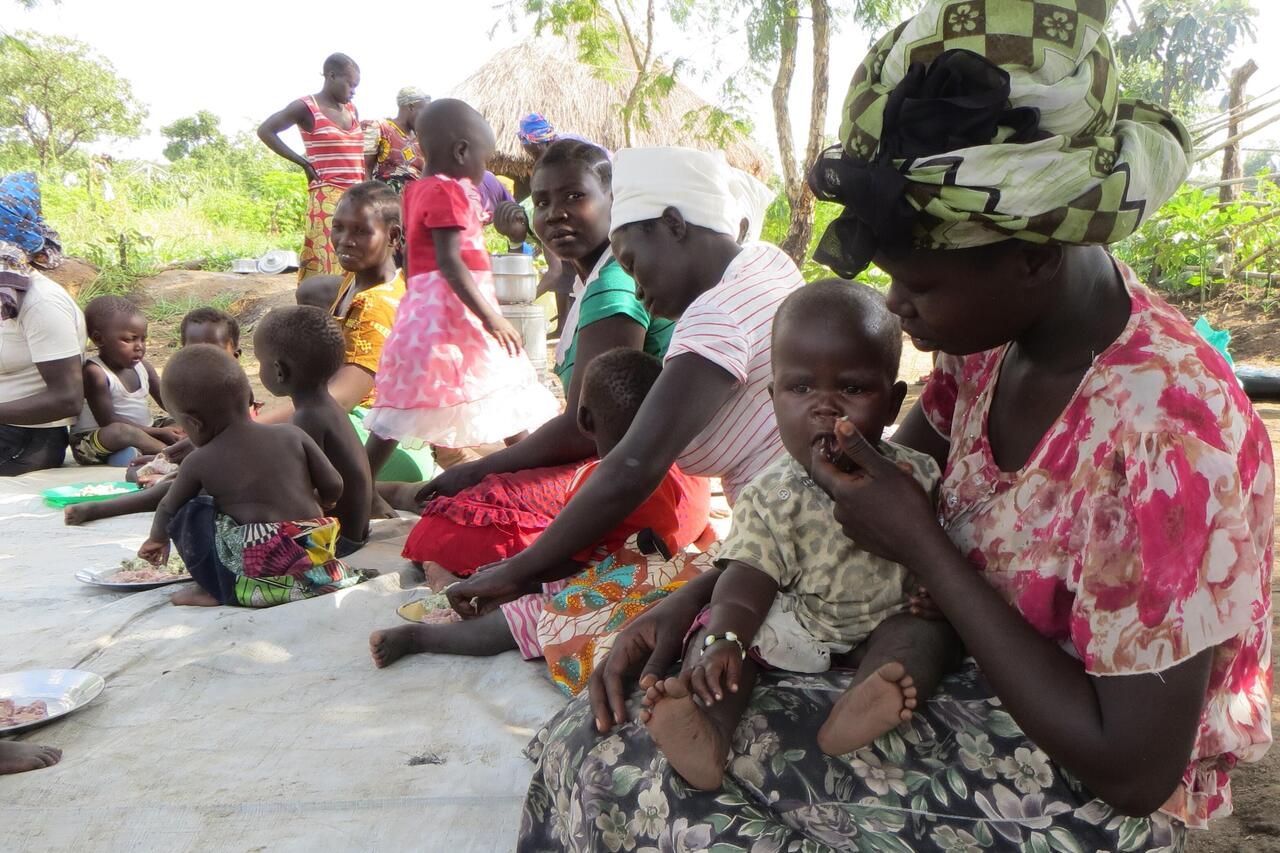Uganda: “The force used by a man to control his wife is considered legitimate”
Berlin / Kampala, 07. December 2020
During the 16 Days of Activism to End Violence against Women, we draw attention to the situation in some of our project countries. In our 3rd interview, Atwiine Muhindi Catherine, Programme Coordinator of our partner organisation ACORD tells us about the especially hard situation for refugees, as well as about the impacts of the Corona Pandemic on women in Uganda.

Uganda is considered a destination for many refugees from the region. Sexualized violence is one of the reasons for fleeing. Are they protected against it in Uganda?
Uganda currently hosts 1,4 million refugees and asylum-seekers from neighbouring countries including South Sudan, Democratic Republic of Congo, Burundi, Somalia and Rwanda. Women and children constitute 81% of the refugee population and these face several forms of discrimination and multiple rights abuses; not only as refugees but also as women and children. Gender-based violence takes forms like rape, female genital mutilation, physical, psychological and emotional abuse, early marriage and sexual harassment among others. However, these forms are worsened by a of lack of basic needs, unequal power relations or breakdown of institutions of social control and order. The extreme conditions that refugees go through during displacement, flight and resettlement tend to exacerbate and sustain gender-based violence.
What are the biggest problems and challenges regarding gender based violence?
Two of the biggest challenges regarding gender-based violence in Uganda are cultural rigidity and power imbalances. Communities’ perceptions and attitudes are still deeply defined by cultures. In Uganda, men are seen to be superior to women and are the sole providers. As a result, they control all of the assets. Often they even pay a bride price for their wives who are then perceived as property. In cases of disagreements, men tend to beat up their wives. The force used by a man to control his wife is considered legitimate. Our cultures have contributed to the loss of power and the lack of control over assets and social networks, increasing the vulnerability of women and girls. In addition to that, the increasing poverty levels among women in Uganda make them rely even more on men for survival. This leads to the risk, that they won’t report gender-based violence committed by their spouses. If they report, the Police lacks the requisite skills and financial support to investigate the cases. Perpetuators are not reprimanded, which encourages impunity. Furthermore, there is a lack of facilities like shelters where survivors can be accommodated and receive counselling and other support. In the justice system there is a absence of specialized courts where it is safe for women to report their cases.
Gender-specific violence includes both violence against a person because of their gender and violence which disproportionately often affects people of a certain gender. Gender-specific violence can be of a physical, sexual or psychological nature or a combination of these forms. This includes domestic violence, sexual harassment and violence, as well as harassment on the internet. Gender-specific violence exists worldwide. Although both men and women are affected by gender-specific violence, the huge majority of victims are women.

Under these circumstances, what are the effects of the COVID 19 outbreak on the current situation for women in terms of violence?
The COVID situation massively increased the vulnerability. Many women were trapped with their abusive partners, isolated from their support networks, and were unable to access essential services. Incomes, health and security worries heightened tensions in homes. Several women's rights organizations and child rights advocates, including the Uganda Association of Women Lawyers, have recorded a raise in incidents of domestic violence and violence against children because of the lockdown. The Ugandan news often were painted with cases of gender-specific violence during the lockdown.
How do you support suvivors of gender-based violence?
It is important to construct a comprehensive support structure which directly empowers victims and encourages them to speak up. Only trough education and capacity building we can initiate the desired change. ACORD is implementing a women and youth spaces approach where information sharing, skilling and psychosocial support for survivors is enhanced. It is crucial to provide emotional and psychosocial support through free, one-to-one, and confidential interaction as an entry point service that is entirely survivor-centred, focusing on a person’s right to be protected from gender-based violence.
Another important point is a social norm change. This could be reached with support by local religious leaders complimented by media campaigns and civil society advocacy. On the one hand ACORD is doing mobilization of different stakeholders to dialogue about gender-based violence and violence against women. This helps to challenge stigma, misconception and discrimination. On the other hand the SASA methodology helps challenging masculinities. It encourages community members to think about the positive effects of balancing power in relationships between men and women.
Another aim is to provide legal support. There must be commitment to end impunity. Victims need justice for the harm inflicted onto them. Effective implementation of laws and policies should be attained to discourage potential perpetuators. ACORD supports victims to access such services through financial support when required. All these different approaches help to tackle violence in a comprehensive manner.
Part one of our interview series
In Ecuador we work together with our partner organisation "Fundación de Mujeres de Sucumbíos" to fight gender-specific violence. In our interview, Amparo Peñaherrera, a staff member of the organisation, warns against the negative impact of the current Corona pandemic, which has significantly worsened the situation for many women.
Part two of our interview series
In Cambodia, we work together with our partner organisation "Women Peace Makers" to fight gender-specific violence. In our interview, Suyheang Kry, the head of the organisation, describes why gender-specific violence is so widespread in the Asian country and what her organisation does to combat it.
